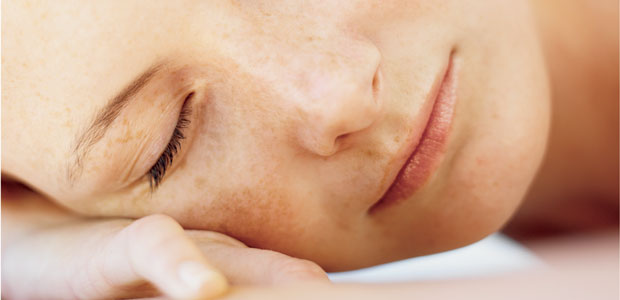Advertisement
Nature’s Nightcap
Remember when you were a child and your parents told you to count sheep to help you fall asleep? Well, if only that worked now! Unfortunately, the older we get the more affected we are by our stressful lifestyles and this can wreak havoc on our health. We’re constantly battling the effects of poor diet, … Continued

Remember when you were a child and your parents told you to count sheep to help you fall asleep? Well, if only that worked now!
Unfortunately, the older we get the more affected we are by our stressful lifestyles and this can wreak havoc on our health. We’re constantly battling the effects of poor diet, lack of exercise, and stress, all of which can adversely affect our body’s ability to sleep.
Sleep disorders plague approximately one-third of the adult population. Many people complain of not being able to fall asleep, while others can fall asleep quickly, only to find themselves wide awake staring at the ceiling three hours later, and then spending the rest of the night tossing and turning.
5-HTP
Stress, a diet low in protein and omega-3 fatty acids, and a lack of exercise all cause our brains to produce low levels of serotonin – our feel-good, happy hormone. When our brains aren’t producing enough serotonin, we may experience depression and suffer from obesity or insomnia.
5-hydroxy tryptophan (5-HTP) is an amino acid (building block of protein) extracted from the seeds of the Griffonia simplicifolia. The body produces its own supply of 5-HTP from tryptophan, an amino acid found in high-protein foods such as chicken, fish, beef, and dairy products. Any healthy diet should include tryptophan-rich sources.
5-HTP reduces the time it takes to fall asleep, and research has shown that it may actually enhance the quality of sleep itself, increasing both the duration of dream states (known as our REM sleep) and of deep sleep. In research studies, most people who tried 5-HTP also reported feeling more rested upon waking.
For insomnia try taking 100 milligrams 30 minutes before going to bed.
Valerian
The herb of choice to aid sleep, valerian root (Valeriana officinalis) has been used for centuries as a mild sedative. Sedation of the central nervous system and brain occurs primarily through GABAa receptors. Constituents of valerian bind “mildly” to these receptors, making it effective in promoting restful sleep and relaxation – but in a non-addictive way.
Effective valerian formulas exist, and the most efficacious are combined with lemon balm (Melissa officinalis), which is another herb with a long history as a mild sedative.
For insomnia take 300 to 500 mg half an hour to one hour before bedtime.
Melatonin
Melatonin has been hailed as a godsend for regulating sleep patterns in weary-eyed shift workers, insomniacs, and those suffering from jet lag. Although there is great anecdotal evidence surrounding the use of melatonin supplements, the science is scattered, some research showing positive results, while others showing no change.
Melatonin is secreted by the pineal gland, a pea-sized structure in the brain that responds to darkness. At night, melatonin is produced to help regulate our sleep-wake cycles. The amount produced by the body seems to lessen with age, which is why scientists believe that young people have fewer problems sleeping. When melatonin levels are produced, they stay in the blood for about 12 hours and start to fall at the light of day.
While it may not improve sleep for everyone, research is more positive about the use of melatonin for resetting the body’s clock and for dealing with jet lag.
For insomnia try half to three mg, one to two hours before bed. For jet lag try one to two mg.
Although making dietary changes and controlling the levels of stress in your life are the best strategies for ensuring a good night’s sleep, natural sleep aids like valerian, 5-HTP, and melatonin are available without the unwanted, dozy side-effects of traditional sleeping pills.
Soon, the only imaginary sheep you’ll meet will be in your dreams.




